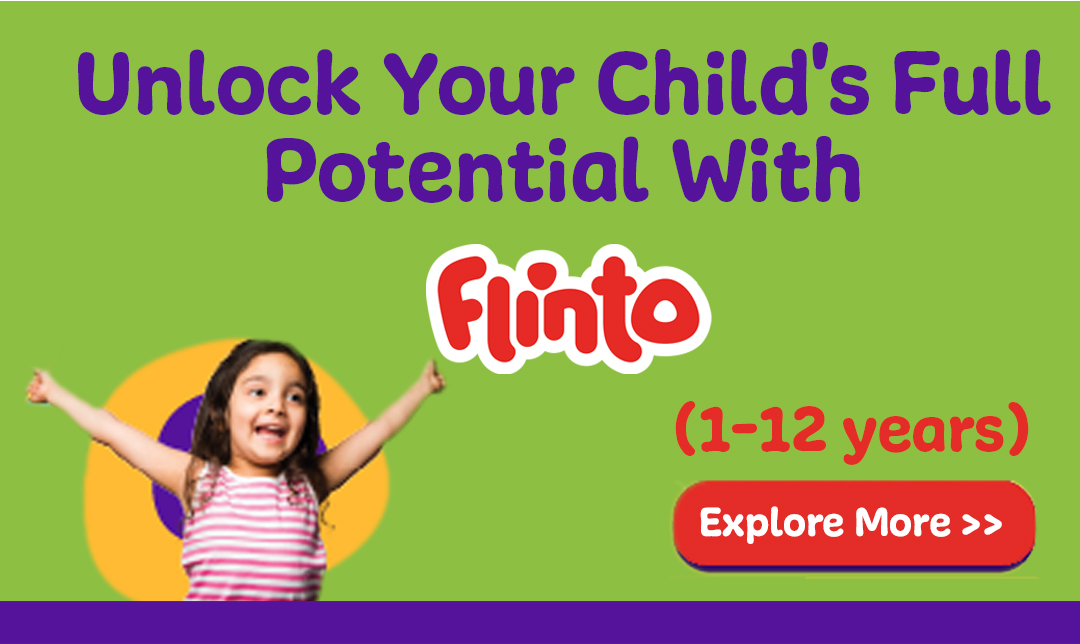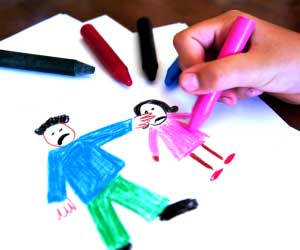 “Now is the best time to put your child in a preschool!”
“Now is the best time to put your child in a preschool!”
If you are the parents of a toddler, you would have heard this.
Perhaps, too many times!
But then, you do have your doubts:
“Do I need to put my child in a preschool?”
“My child can learn at home, can’t they?”
And, many more…
We understand these questions as you are deciding on the stepping stones of your child’s schooling years.
Don’t worry!
We have just the blog for you where we discuss everything about a preschool — what it is, why your child needs it (and what they will miss out on), how they become school-ready, and much more.
At this point, your child is exploring more; communicating more; trying to do multiple things; becoming more independent and social.
Ah, that curiosity!
Research conducted by multiple organisations, including UNICEF, shows that a good-quality early education forms a “strong foundation upon which all learning depends on, making every stage of education that follows more efficient and more productive.”
In their early years, children learn through their everyday experiences and therefore, a preschool offers them a structure, which is flexible and repetitive.
What is preschool?
A preschool can be defined as a learning space that offers early childhood education and prepares children for primary school.
Imagine a place that allows your child to explore, communicate, learn, and become more independent.
That place is preschool!
Typically, 10-15 children in the same age group spend a few hours in a day under the guidance of the early educator(s)/teacher.
This means that each child gets the necessary attention required for their age.
Although not strictly academic-driven, the early education curriculum is designed to identify each child’s method of learning — visual, auditory, kinesthetic.
Therefore, a preschool becomes the stepping stone to your child’s regular schooling.
Interestingly, many preschools today include up to upper kindergarten.
Not convinced, yet?
Well, let’s delve further to know what your child would miss out on!
11 ways preschool helps your child
1) Structured environment
 Perhaps, a day in the preschool may seem chaotic to us.
Perhaps, a day in the preschool may seem chaotic to us.
But then, look again!
It’s highly structured and the activities for the day are prepared ahead of time.
It will begin with a group activity — circle time, group interaction, etc.
Usually, this marks the beginning of a child’s day.
This is followed by activities, which again are structured around a theme or similar topics.
In between their day in the preschool, there is time for snacks and unstructured play.
Children will take time to get used to this.
In the long run, it prepares them for regular school.
2) Child-centric environment
Unlike traditional classrooms, a preschool is centred around children. It’s almost home-like.
A child must feel comfortable to explore and learn.
A teacher is not merely there to provide instructions, but understand each child’s needs and work with individually.
At the same time, they also focus on group activities where each child would feel empowered.
The child-centric approach in a preschool provides a wonderful learning space for your child.
Imagine a space where they don’t feel the need to rush and learn.
3) Concept-based learning
What would you say to introducing different concepts around a theme?
Each early learning methodology — Montessori, Playway, etc. — is centred around skill-based learning that a child at a tender age would require.
A preschool, which would follow a suitable methodology, would choose a theme for the month and introduce concepts and vocabulary through activities.
For children between the ages of 2 and 4, they are introduced to pre-math concepts in a thematic manner.
4) Cognitive development
Your child is curious and wonders how things work!
As learning occurs in a step-by-step manner over a defined period, the curriculum is designed around encouraging each child’s natural curiosity to explore and learn.
As they explore, interact, ask questions, solve problems, and try to comprehend the logic, they reach out to their teacher.
The educator plays a key role in guiding and nurturing them.
The activities also focus on language and numeracy.
A two-year-old would explore pre-math concepts and be introduced to numbers. (They may be too young to begin writing) as opposed to complex (for the child) math concepts for a 4-year-old.
By the time a child is ready for Grade 1, they would be comfortable reading simple sentences, sight words, letters (upper and lower case). For this learning to be of effect, their learning would start with stories, rhymes, phonetics, and much more.
5) Fine and gross motor exploration
Preschool is a tactile-friendly environment for a child with safe toys included.
Apart from the unstructured play, each day at a preschool would include some form of gross motor movement.
Running is fine. But, how about balancing or perhaps, stretching?
 Wouldn’t it be fun to watch your child write?
Wouldn’t it be fun to watch your child write?
Well, for this to happen, they require a tripod grip — use of the thumb, index, and middle fingers to hold a writing tool such as pencil, crayons, etc.
As your child enters Grade 1, they would have mastered the tripod grip. But to reach that stage, they must master other grips such as using the fist, pincer, etc.
An educator who is well aware of the transition in a child’s grip will provide suitable activities and tools for them to improve. Group or individual activities that involve finger-painting, peeling and pasting, etc.
This attention to your child’s use of fine motor muscles is essential for their handwriting.
6) Peer interaction
Have you noticed that your child (before starting preschool) shows interest in interacting with children of their age?
A preschool is a great place for them to meet someone in their age bracket.
As they interact with their peers, it enables them to understand others’ perspectives.
It provides scope for your child to negotiate, empathise, and form bonds, which are not possible otherwise.
The preschool promotes positive peer interaction where the teacher may intervene only if necessary.
This develops your child’s interpersonal skills and you will definitely see the difference in the way they interact with you.
RELATED: A Simple Checklist To Track Your Child’s Developmental Milestones
7) Social development
Your child’s social growth is closely interlinked with peer and adult interactions.
Your child becomes part of a social group within a preschool where they learn to take care of their peers, understand social cues, try to be part of a group.
The teacher, therefore, becomes a facilitator as your child interacts with those around them. Everyone is their friend.
They also understand their interaction with adults in the classroom such as their educator. This makes them understand that ‘being at home’ and ‘being at school’ are two different environments.
A child forms a trusting bond with their peers and others, besides the family members.
8) More communicative
At home, your child talks to familiar people, which in turn means that their needs are understood with familiar words.
At preschool, they must communicate their needs to not only the adults but to their peers as well.
Imagine a class filled with children who are at a similar stage as them. It’s a huge motivation for them to expand their vocabulary.
The child-centric environment places an emphasis on a child’s communication. (This helps in potty-training)
When a question is asked, they respond along with their peers or by themselves.
When they are learning something new, they try to use it in a conversation.
And the fun part, they get to sing rhymes, tell stories, and sound out the words phonetically.
Imagine singing “C-a-t, c-c-c-, c-at…!”
9) Emotional growth
At home, a child gets what they want and their needs are understood.
As a baby, it works. But as your child becomes a toddler, they become independent.
And, the preschool nurtures them to be more independent.
There is something for them to learn though — need to express their needs, identify and understand their emotions, comprehend emotions of others around, etc.
When a conflict arises among the peers, the teacher helps each child understand and work with their negative feeling, without shaming them.
Largely, it helps your child become more confident with their emotions and be empathetic.
10) Reduces separation anxiety
 Remember your first day to school?
Remember your first day to school?
You would have cried or would have seen your classmates cry!
Difficult, wasn’t it?
Well, preschool helps your child become more aware and confident.
Definitely, the initial few days would be difficult for them. This is why a parent would be allowed to sit with them.
It varies from preschool to preschool, but the parental presence is ensured for the first few days.
You are part of the transition.
Also, as they interact with their peers, it helps them become comfortable.
They understand that preschool and home are different spaces.
And a huge plus…
It eases you as well into a routine of seeing your child going to preschool. You will slowly create an independent routine.
Just another bonus!
And, this is for you.
11) Interaction with other parents
As your child eases into a preschool, you will get to interact with the parents of their peers.
This will be your external support. Let’s say a preschool parent’s support group!
Especially, when it comes to separation anxiety of a child or for yourself.
Wouldn’t it be nice to talk to parents whose children study in the same preschool?
More than anything, you could help foster friendships in your children.
So, do you see how preschool helps your child?
Imagine what happens if your child misses out on all this?
Preschool and school-readiness
As mentioned earlier, a high-quality preschool can have a huge impact on your child’s schooling years.
From preparing them to write with confidence to communicating effectively, preschools have been designed around the child’s needs.
Through structured and unstructured play, there are myriads of skills your child develops during their early learning years.
You can check all the boxes for your child — confidence, independence, social and person awareness.
Last but not least, your child would have been potty-trained by the time they are ready for school!
RELATED: 10 Tips To Select The Perfect Preschool For Your Child
In a normal scenario, sending your preschool is the best option!
But, what can you do when you are in the middle of an unprecedented COVID pandemic?
Presenting Flintoclass@HOME
Well, we’ll introduce you to Flintoclass@HOME.
Launched by Flintobox, Flintoclass@HOME helps you mimic the preschool environment at your home for 1.5 – 5.5 years.
An all-inclusive kit with instructions, storybooks, activity journals, and materials are shipped to your doorstep.
Flintoclass curriculum, which has been designed around a child’s preschool learning requirement, has been adapted for preschool at home!
Besides, every week there are three pre-recorded, virtual guidance sessions by early education experts — it’s not your regular online class! — and a dedicated early learning counsellor who will help you through at every step.
Worry not, as your child completes their preschool learning with Flintoclass@HOME, they would be eligible to join any of our partner-schools across India.
So, give Flintoclass@HOME A try!







